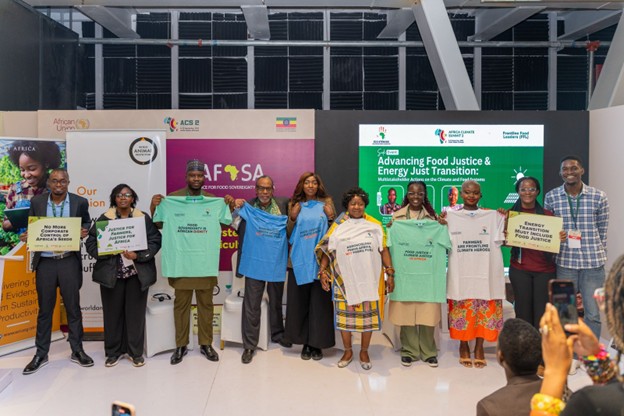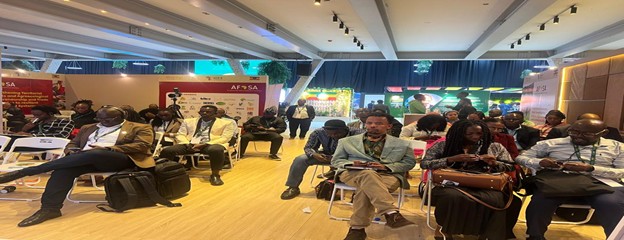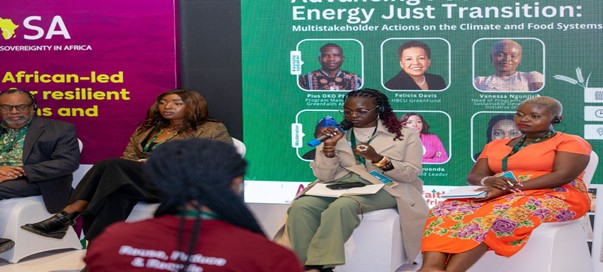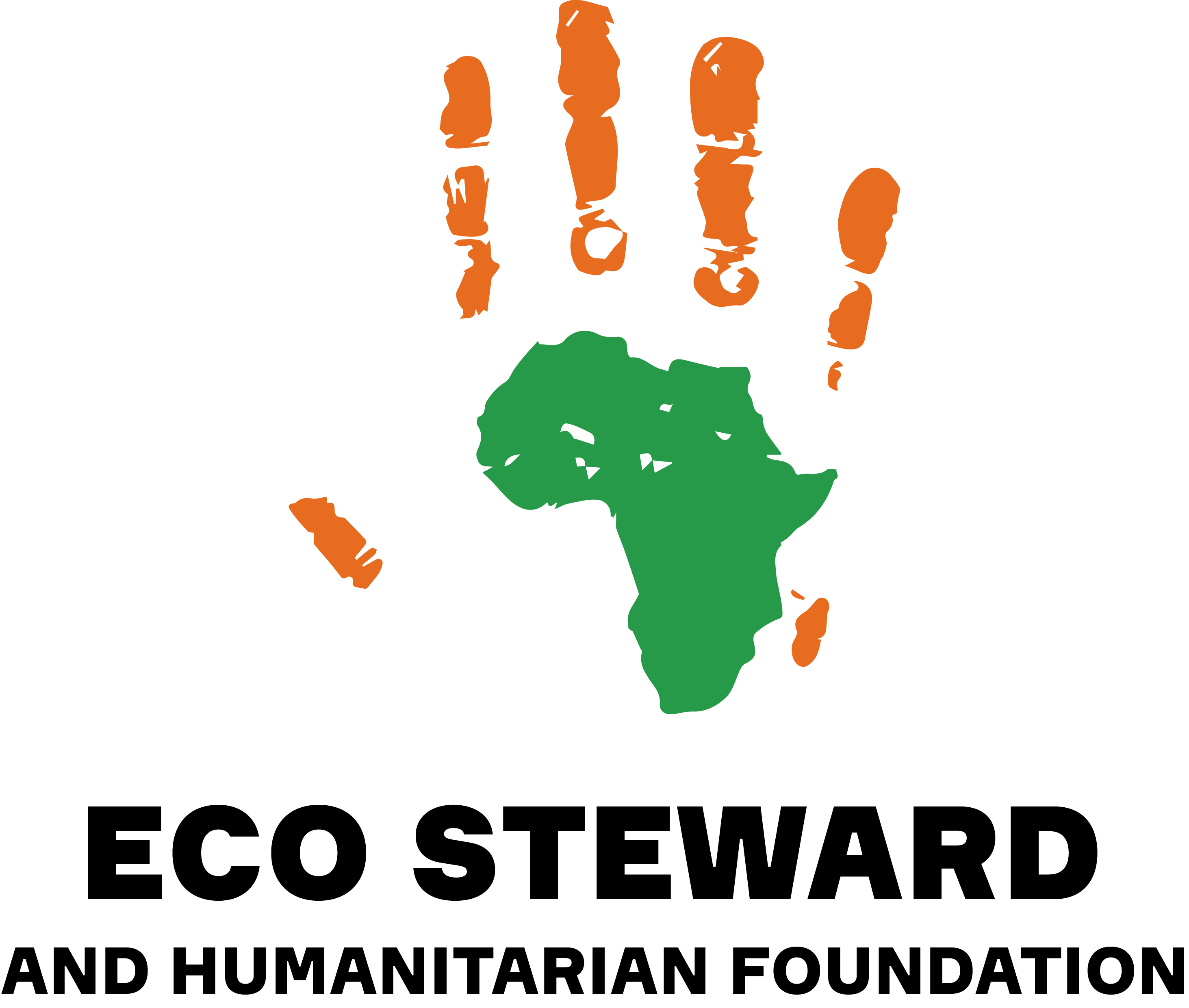
Addis Ababa Declaration unlocks billions for African-led climate solutions, but grassroots resilience must remain at the heart of implementation
Addis Ababa, Ethiopia | 11 September 2025 — At the close of the Africa Climate Summit 2 (ACS2), Ecosteward Foundation reaffirmed Africa’s historic emergence as a global climate leader, while urging governments and partners to prioritize agroecology as the backbone of resilience, food sovereignty, and climate justice across the continent. This call was made during the side event, “Advancing Food Justice & Energy Just Transition: Multistakeholder Actions on Climate and Food Systems,” held on 9 September 2025 at the Agriculture & Food Systems Pavilion, AICC, Addis Ababa. The event was convened by Ecosteward Foundation and Humanitarian Foundation (EHF) with support from the Global Alliance for the Future of Food, in partnership with Frontline Food Leaders (FFL), the Alliance for Food Sovereignty in Africa (AFSA), Jeunes Volontaires pour I’Environnement (JVE), GreenFaith Africa, GreenFaith Nigeria, HBCU GreenFund, and Community Action for Food Security.

The summit, which brought together heads of state, international organizations, private sector leaders, and grassroots movements, concluded with the landmark Addis Ababa Declaration and a wave of unprecedented financial pledges, including:
- Africa Climate Innovation Compact (ACIC): $50 billion annually for renewable energy, innovation, and adaptation.
- Expanded African Climate Change Fund: Unlocking finance for adaptation and loss-and-damage.
- Africa Just Resilience Framework: Directing resources toward locally led solutions protecting vulnerable communities.
While welcoming these commitments, Ecosteward Foundation, through its Convener, Dr. Pius Oko, emphasized that it is time to move “From Declarations to Action”. Climate finance he insisted, must flow directly to smallholder farmers, women, and youth who are powering grassroots solutions, not stop at governments and institutions.
“Agroecology is not a fallback option. It is Africa’s original climate pathway; restoring degraded lands, securing food sovereignty, and building resilience to climate shocks,” said Dr. Pius Oko, in his closing remarks. “If global finance fails to reach the grassroots, these promises will remain empty headlines.”
Why Agroecology Matters Now
Across Africa, over 600 million Africans lack access to electricity, and over 900 million lack clean cooking solutions; Fossil fuel driven agriculture erodes soil health, deepens inequality, and undermines food systems and Climate shocks from prolonged droughts in the Horn of Africa to devastating floods in West Africa are displacing millions, with up to 118 million Africans projected to migrate due to climate impacts by 2030 if urgent action is not taken.
Agroecology provides integrated solutions: blending indigenous knowledge, low-carbon farming, renewable energy, and gender-responsive practices. According to recent FAO reports, agroecology strengthens food security while reducing greenhouse gas emissions, positioning it as one of the most viable pathways toward the Sustainable Development Goals (SDGs).
From Declarations to Action
Ecosteward Foundation is urging African leaders and international partners to prioritize: Grants, not loans, to prevent deepening Africa’s debt burden. Locally led solutions, treating farmers, women, and youth as equal partners, not passive beneficiaries. And Integrated investments in renewable energy and sustainable agriculture, bridging food sovereignty with energy justice.

A Turning Point for Africa’s Climate Leadership
ACS2 marks a critical shift: Africa is no longer on the sidelines but at the heart of global climate negotiations. With the Addis Ababa Declaration, Africa has spoken with one voice. The challenge now, Ecosteward Foundation insists, is for the world to listen and act.
About Ecosteward Foundation: EcoSteward Foundation is a grassroots nonprofit advancing climate justice; agroecology, energy just transition and sustainable development across Africa. Through advocacy, research, and community-led initiatives, it empowers smallholder farmers, women, faith and youth groups to lead in building climate-resilient futures. Learn more at www.ecostewardafrica.org.
